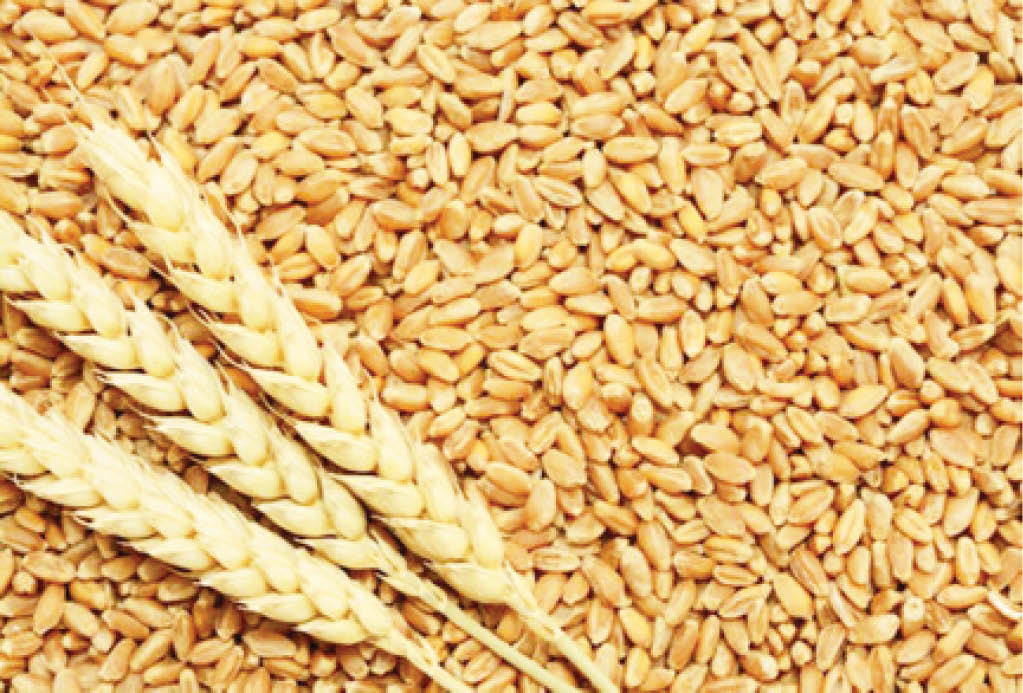Flour millers to cultivate 4,000 hectares of land for wheat production in 2023
The Flour Milling Association of Nigeria (FMAN) says it is cultivating 4,000 hectares of land for wheat production across the country in its 2022 – 2023 programme. The National Programme Manager FMAN Wheat Development Project, Dr Aliyu Samaila, made this known on Tuesday at Kadawa, Garun-Malam Local Government Area of Kano State. According to Samaila, […]

Wheat
The Flour Milling Association of Nigeria (FMAN) says it is cultivating 4,000 hectares of land for wheat production across the country in its 2022 – 2023 programme.
The National Programme Manager FMAN Wheat Development Project, Dr Aliyu Samaila, made this known on Tuesday at Kadawa, Garun-Malam Local Government Area of Kano State.
According to Samaila, the FMAN’s wheat programme is being implemented through the ABP of the Central Bank of Nigeria.
He said that their number one role was to provide a market for wheat farmers in the country.
What must be done to avert food crisis – Margarita Aswani
Starting quail farm: what you need to know
“We cultivated 500 hectares of land for wheat production in 2022, and we have now doubled it to 1,200 this year in Kano.
“We are expanding our procurement as an industry across the wheat producing states through additional aggregation staff and warehouse capacity.
“Specifically, we are establishing procurement centres across 13 Northern states to off-take all wheat grain from up to 50,000 farmers. The states are Kano, Kaduna, Jigawa, Kebbi, Sokoto, Bauchi, Adamawa, Gombe, Plateau, Taraba, Zamfara and Yobe.
“To sustainably expand wheat production in the country, we must increase farmer yields, to make wheat competitive with rice and other dry season crops,” Samaila said.
He said that cultivation of 114-hectare demonstration farms across the six northern states to provide training on good agronomic practice was also part of their development plan.
“The states include Adamawa, Borno, Gombe, Plateau, Taraba and Yobe.
“We will expand FMAN’s direct Outgrower programme with input loans to cover 4,300 farmers across 3,900 hectares in seven states – Kano, Jigawa, Sokoto, Kebbi, Kaduna, Bauchi and Zamfara.
“We will also expand seed production with six certified seed companies, including both dry and wet season seed production, to produce sufficient seeds for 10,000 hectares next season, among others,” he said.
He further expressed optimism that the programme, which started two years ago, would progress up to the level of scaling up local wheat production to stop importation of the crop.
The Director, Agricultural Services, Kano Ministry of Agriculture, Alhaji Abdulkadir Sanusi, who lauded the initiative, said it would boost wheat cultivation in the area.
He said the state government had introduced programmes to support wheat farmers in the state.
Sanusi also commended the CBN for their efforts to boost wheat production in the state.
Dr Godwin Atser, the Sasakawa Country Director, revealed that the importation of wheat costs the country about $2 billion annually, thereby exerting pressure on the country’s food import bill.
He commended FMAN and CBN for the wheat farmers’ support programme.
Some of the farmers who spoke with the News Agency of Nigeria (NAN) praised the Federal Government and FMAN for the ‘unprecedented’ attention given to the sector.
They also commended the CBN and other coordinating banks for their efforts at addressing the challenges facing the farmers. (NAN)
